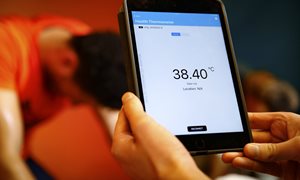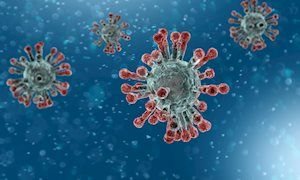 In 2016, 121,000 people in the Netherlands sought emergency care for sports injuries. Every year, there are 4.5 million injuries in the Netherlands, accounting for 5 million euros in direct medical costs. Half of these injuries could potentially be prevented through effective support and self-management.
In 2016, 121,000 people in the Netherlands sought emergency care for sports injuries. Every year, there are 4.5 million injuries in the Netherlands, accounting for 5 million euros in direct medical costs. Half of these injuries could potentially be prevented through effective support and self-management.
In a new, wide-ranging research project, universities, businesses and sports organisations are set to join forces in an effort to reduce this large number of sports injuries with the help of technology. The Netherlands Organisation for Scientific Research (NWO) is providing a grant of 4 million euros to support the project. In addition, businesses and sports organisations are jointly investing 2.2 million euros in the project. Delft University of Technology and VU University Amsterdam will take the lead in this nationwide research consortium that aims to make injury-free exercise possible for everyone.
One of the angles in this project is overheating. Maria Hopman and Thijs Eijsvogels from the department of Physiology participate in this part of the project. Running causes the body temperature to rise. In the Zevenheuvelenloop (Seven Hills Run), 15% of runners has a body temperature above 40° Celsius by the time they reach the finishing line. In order to identify potentially dangerous situations at an early stage, sensors can be embedded into clothing to measure skin and core temperature and camera systems can be used during running competitions. During exertion in hot conditions, like at the upcoming Olympic Games in Tokyo, preventive measures could be used to regulate body temperature, such as a vest that cools the body based on information from these sensors.
The project, Citius Altius Sanius, aims to promote participation in sport, prevent injuries and improve performance in both amateur and top-level sport. This can be achieved by providing the athlete with information via sensors, data science technology and psychology-inspired smart feedback devices in order to influence their behaviour.
This research is conducted within the themes: Mitochondrial diseases and Vascular damage.
Related news items

Grants for heart and kidney research Two awards to Radboudumc in Open Competition ENW-XS
21 July 2022Two researchers from the Radboudumc receive a grant from the NWO within the Open Competition of the Exact and Natural Sciences. They are Thijs Eijsvogels, who studies the heart, and Pieter Leermakers, who studies the kidneys.
go to page
Your heart rate as a thermometer Research Olympic athletes will be followed up during 4Daagse
18 July 2022Body temperature can be determined from heart rate. This is what research by the Radboudumc among Olympic athletes shows. Athletes can use this method during training to eventually perform better in the heat. The technique is now being further investigated among participants in the 4Daagse.
go to page
Young Investigator Award for Esmée Bakker
14 April 2022 Esmée Bakker received the Young Investigator Award for her abstract ‘Acute and long-term mortality rates among participants of mass-participation sports events versus the general population.’ go to page
Esmée Bakker obtained a Marie Skłodowska-Curie grant
29 March 2022 Esmée Bakker obtained a Marie Skłodowska-Curie European Postdoctoral Fellowships (160k) of the Horizon 2020 of the European Union. go to page
Exercise program appears to be a good alternative to surgery for chronic chest pain Reduced risk of other conditions, hospitalizations, and mortality
9 December 2021 Patients with chronic chest pain may benefit more from following an exercise program than from surgery in which doctors place a stent. Data from over 18,000 patients show a reduced risk of mortality, hospitalizations and other conditions. go to page
